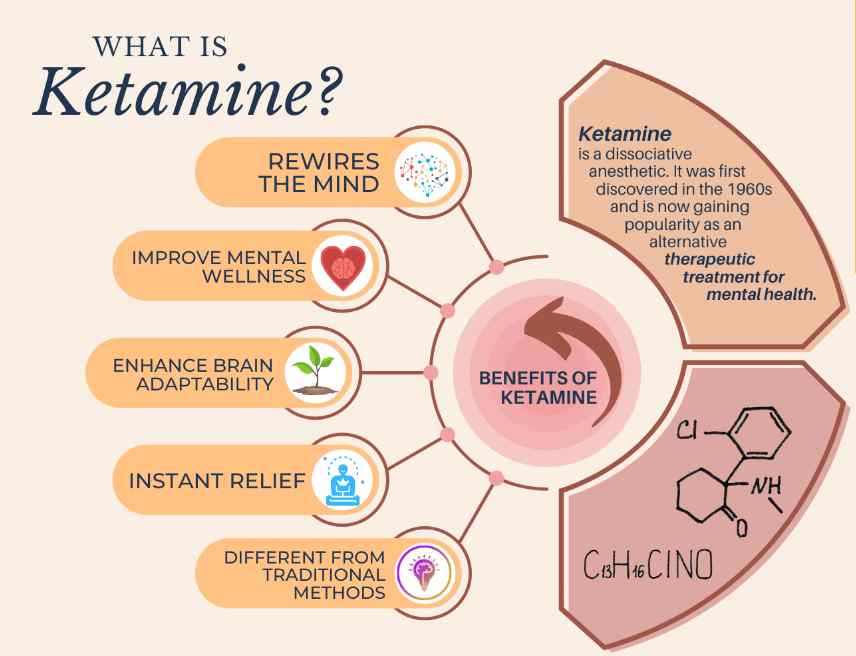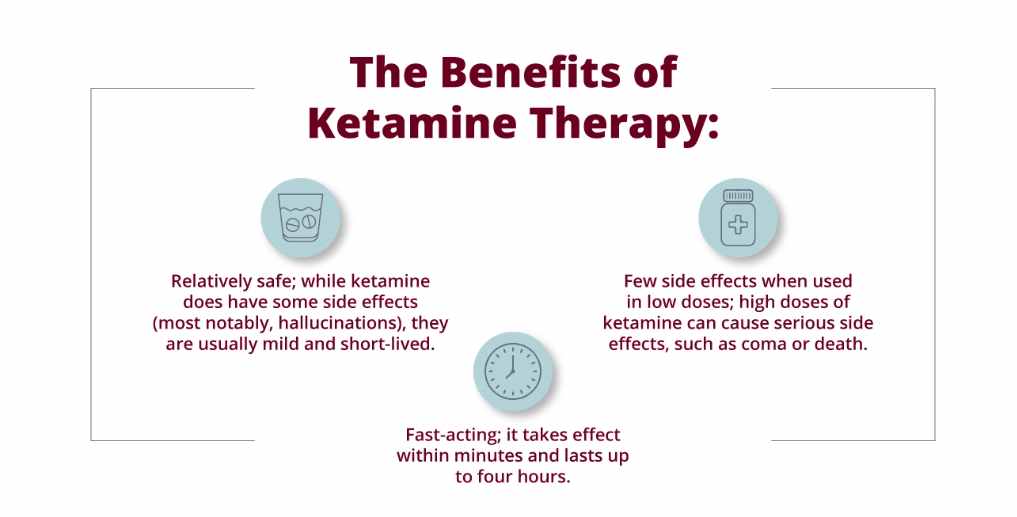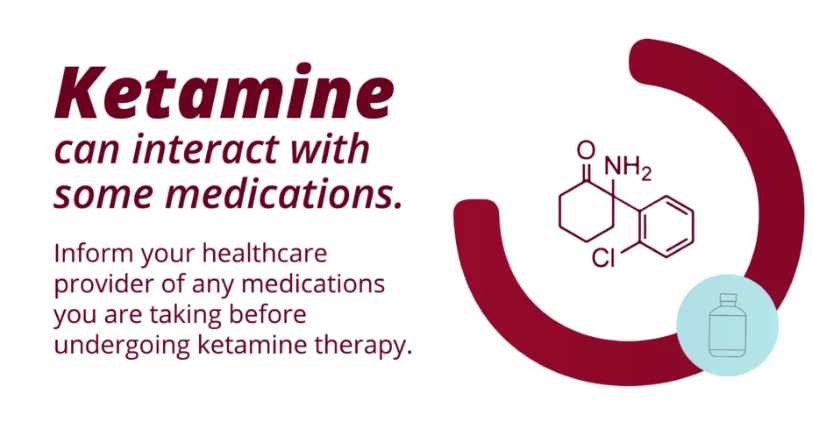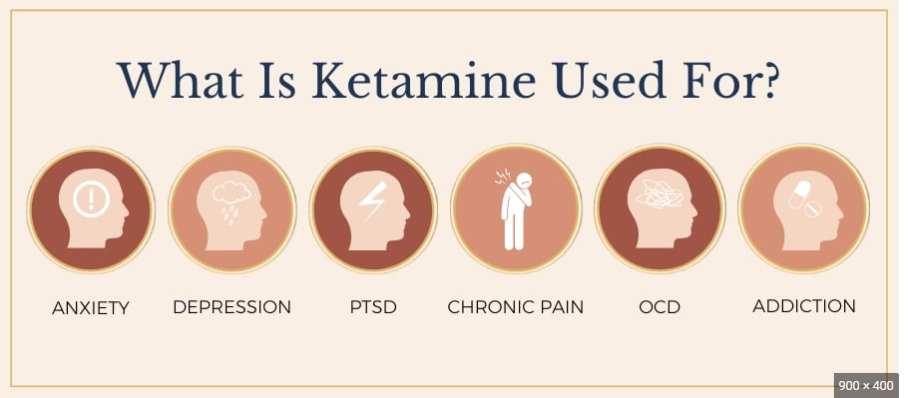
Ideal Candidates for Ketamine Therapy : Ketamine therapy has become well-known in the field of cutting-edge mental health treatments as a ground-breaking strategy for people suffering from severe depression, anxiety, and other mood disorders. Even though many patients have experienced amazing benefits from the treatment, it’s important to determine who might not be the best candidates for this cutting-edge therapy. In this extensive manual, we examine the conditions that could prevent someone from receiving ketamine therapy.
- What is a Ketamine therapy ?
- how long dose a ketamine treatments last ?
- Overview of Ketamine Therapy and Its Potential Benefits / Benefits for candidates of ketamine therapy
- The Ketamine Process
- Suitable Individuals for Ketamine Treatment / Is ketamine IV therapy right for you?
- What is the dissociation of ketamine?
- Who Might Not Be the Best Fit for Ketamine Treatment
- Cost of ketamine integration.
- What is Ketamine used for ?
- Who Needs to Think About Treatment?
- How to determine if you’re an appropriate candidate for ketamine therapy
- Who Might Not Be Fit for Ketamine Treatment?
- Potential Negative Effects of Ketamine Treatment
- Ketamine Therapy Process
- The Prospects for Ketamine Treatment
- Is ketamine therapy covered by insurance
- Advantages of Selecting Ketamine Treatment
- ketamine therapy for depression
- Conclusion
What is a Ketamine therapy ?

Let’s quickly review the basics of this therapy before getting into the eligibility details. it is an anesthetic that has been shown to reduce symptoms of anxiety, depression, and post-traumatic stress disorder when given at sub-anesthetic dosages. Ketamine infusions under close supervision and control are administered as part of this therapy in a clinical environment.
how long dose a ketamine treatments last ?

Although the length of ketamine treatments varies, a normal session typically lasts between 45 and 60 minutes. A single treatment’s effects can vary in duration, ranging from several days to several weeks, contingent upon the patient and the particular ailment under consideration. To find the best course of action for your requirements, it is imperative that you speak with a healthcare provider.
Overview of Ketamine Therapy and Its Potential Benefits / Benefits for candidates of ketamine therapy
In the field of mental health, this therapy has attracted a lot of attention as a novel and quickly developing treatment. This in-depth review delves into the definition of ketamine therapy, its possible advantages, and how it is changing the face of mental health care.
Comprehending Ketamine Treatment
It has been repurposed in the field of mental health from its original use as an anaesthetic. Ketamine therapy is giving regulated doses of ketamine to people who are suffering from different mental health issues, especially those who are not responding well to conventional treatments.
Possible Advantages of Ketamine Treatment
This therapy has a wide range of potential advantages and has demonstrated great promise in treating a number of mental health conditions. Here are a few main benefits:

- Rapid Relief
- Treatment-Resistant Conditions
- Mood Stabilization
- Reduction of Suicidal Ideation
- Improved Quality of Life
- Enhanced Cognitive Function
- Lower Risk of Relapse
The Ketamine Process
The Ketamine Treatment Process are as follows :

Suitable Individuals for Ketamine Treatment / Is ketamine IV therapy right for you?
While many people have found ketamine therapy to be a game-changer, it is not appropriate for everyone. Who is the best candidate for this treatment depends mostly on the following factors:
1. Identification of Serious Mood Disorders
Those with severe depression, anxiety, or other mood disorders who have not responded well to traditional therapies are the main people for whom this therapy is advised. Frequently, ideal individuals suffer from incapacitating symptoms that have a major impact on their quality of life.
2. Ineffective Conventional Therapy
This therapy is frequently recommended for patients who have tried conventional therapies like antidepressants and psychotherapy in the past but were unable to find relief. For those whose results with conventional procedures have not shown significant improvement, this novel approach provides hope.
3. Psychological Assessment
One of the most important steps in establishing eligibility is a comprehensive psychological evaluation. To be sure ketamine therapy is the best course of treatment for their particular disease, patients should have a thorough evaluation.
4. Health and medical background
Examining the candidate’s medical background and general physical condition is crucial. A person may not be eligible to get ketamine therapy if they have a history of substance misuse or uncontrolled high blood pressure.
5. Compatibility of Medication
It may have unfavourable interactions with some drugs or lose some of its effectiveness. drug reviews for an ideal candidate are necessary to make sure the drug does not jeopardise the course of treatment.
6. Dedication to the Procedure
Usually, This therapy consists of a few weeks’ worth of sessions. The best prospects will be those who can dedicate themselves to this treatment plan and show up for every session on time.
What is the dissociation of ketamine?

Some people can have a dissociative condition after using ketamine. A brief mental condition known as dissociation occurs when a person feels cut off from their body, ideas, or environment. One of the reasons ketamine is employed in therapeutic and medical contexts, such as ketamine-assisted psychotherapy, is because of this dissociative effect.
Who Might Not Be the Best Fit for Ketamine Treatment
After discussing the requirements for a perfect candidate, let’s look at the situations when people might not be a good fit for ketamine therapy:
1. Mood Disorders, Mild to Moderate
The main target audience for ketamine therapy is people with severe mood disorders. Alternative forms of treatment may be more appropriate for those with lesser levels of anxiety or depression.
2. Reluctance to Take Part in Psychological Assistance
Although quite successful in certain cases, ketamine therapy is not a stand-alone treatment. To get the most out of Ketamine treatment, patients need to be open to receiving therapy and psychological support in addition to their sessions.
3. Contraindications in Medicine
There are some medical factors that make ketamine therapy contraindicated, such as serious liver or cardiac issues. To detect such diseases, a thorough medical evaluation is essential.
4. Incompatibility of Medication
As was already established, there may be adverse drug interactions with ketamine. Those who can’t modify their prescription schedule might not be good prospects.
5. Absence of Dedication
In ketamine therapy, consistency is essential. Patients might not see the expected outcomes if they are unable or unable to adhere to the suggested treatment plan.
Cost of ketamine integration.
The price of its integration, which covers the therapy as well as related services, can differ significantly based on a number of variables, including the location, the clinic or healthcare provider, the number and length of sessions, and any extra services rendered. A single session of ketamine therapy can cost anywhere from $300 to $600 on average. A typical treatment plan can cost anywhere from a few hundred to several thousand dollars, with several sessions spread over several weeks.
It’s crucial to remember that some medical professionals provide discounts or bundle offers for several visits. It’s also advisable to check with your insurance carrier to see if any amount of the cost of ketamine therapy may be covered, as insurance coverage varies.
What is Ketamine used for ?

Who Needs to Think About Treatment?
One ground-breaking method for treating mental illness is ketamine therapy. It’s critical to comprehend the requirements and traits of people who might profit from this novel treatment.
1. Depression Resistant to Treatment
This therapy works quite effectively for people who don’t react well to conventional antidepressants. If you have experienced depression that is resistant to treatment, ketamine therapy may be a game-changer for you.
2. Severe Disorders of Anxiety
Ketamine therapy can provide significant relief for people who suffer from crippling anxiety disorders including social anxiety disorder or generalised anxiety disorder (GAD). Your quality of life may be enhanced and symptoms may be better under this treatment.
3. PTSD, or post-traumatic stress disorder
Ketamine therapy has demonstrated impressive outcomes for PTSD sufferers. It can help lessen the severity of unpleasant memories and offer a way to get better.
4. Mental Illness
Ketamine therapy may be helpful for people with bipolar disorder, particularly during depressive episodes. This novel therapy can stabilise mood swings and offer quick relief.
How to determine if you’re an appropriate candidate for ketamine therapy
To determine your suitability for ketamine therapy, consult with a qualified medical professional. They will assess your medical history, mental health condition, and treatment history. They will also consider factors like treatment-resistant symptoms and contraindications. A thorough evaluation by experts will ensure that ketamine therapy is the right choice for your specific needs.
Who Might Not Be Fit for Ketamine Treatment?
It is crucial to realise that not everyone is a good candidate for ketamine therapy. To guarantee the security and welfare of each and every possible applicant, we are dedicated to offering an open and honest evaluation.
1. Past History of Drug Abuse
Ketamine therapy might not be a good idea if you have a history of substance abuse, especially with regard to ketamine or other dissociative medications. It’s important that our medical professionals know about your medical history.
2. Unmanaged High Blood Pressure
Those who have uncontrolled hypertension might not be the best candidates for ketamine treatment. Patient safety is our top priority, and managing hypertension is necessary before pursuing this course of treatment.
3. Intense Psychotic Conditions
Ketamine therapy may not be appropriate for people with active psychotic disorders like schizophrenia. It’s essential to speak with our professionals to figure out the best course of action for your unique requirements.
4. Maternity
Ketamine therapy should not be administered to pregnant women because the effects on foetal development are still unclear. Please talk to our medical staff about alternate treatment options if you are pregnant or intend to get pregnant.
Potential Negative Effects of Ketamine Treatment
Although ketamine therapy has demonstrated impressive results in treating mental health issues, it is important to be mindful of any possible adverse effects. The following are a few potential side effects of ketamine therapy:
- Dissociation: When using ketamine, you may experience a dissociative state in which you feel cut off from both yourself and your environment. Usually, this impact is fleeting and disappears at the end of the session.
- Nausea and Vomiting: During or after the Ketamine session, some people may feel mild nausea or, in rare instances, vomiting.
- Elevated Heart Rate and Blood Pressure: Ketamine may cause a brief elevation in heart rate and blood pressure. People who have cardiovascular problems need to be closely watched.
- Headache: One of the most frequent adverse effects is headache, which might happen right after a session. They typically don’t last long.
- Psychological Discomfort: During or after a Ketamine session, some people may feel transient psychological discomfort, bewilderment, or vivid nightmares.
- Possibility of Dependency: If ketamine is not taken in accordance with medical professionals’ prescriptions, it may result in psychological dependence. It’s imperative to follow the treatment plan exactly.
- Bladder Problems: Although bladder problems have been linked to chronic, high-dose, or recreational ketamine usage, these are less common in clinical settings where dosages are closely monitored.
- Risk of Flashbacks: Although rare and usually transient, some people may have flashbacks or the reappearance of unpleasant experiences from the past.
Ketamine Therapy Process

The Prospects for Ketamine Treatment
For many who have long sought solace from severe mood disorders, ketamine therapy offers as a ray of hope as the area of mental health continues to advance. It is significant to remember that there are always changing requirements for both eligibility and disqualification. Our understanding of ketamine therapy is constantly growing thanks to ongoing research and clinical studies, which may increase the therapy’s usefulness.
Current Research
Researchers are working hard to determine whether ketamine therapy can help with a greater variety of mood disorders. The purpose of this study is to find new candidate groups and improve the current treatment protocol.
Individualised Care
We may anticipate a more individualised approach to ketamine therapy in the future. Treatment programmes can be customised to meet the specific demands of each patient thanks to developments in medical technology and a greater understanding of each patient’s characteristics.
Enhanced Accessibility
We can expect ketamine therapy to become more widely available as its effectiveness is acknowledged. A wider range of people will likely be able to obtain Ketamine Therapy as more clinics and healthcare providers provide it.
bolstering therapies
Another direction for advancement is the combination of ketamine therapy with additional therapeutic modalities. Patients may have even more significant and long-lasting benefits if they combine Ketamine sessions with professional psychological care.
Is ketamine therapy covered by insurance
According to the provider and region, insurance coverage for this therapy differed as of January 2022, when I last updated my understanding. For some diseases, ketamine therapy was covered by some insurance companies, particularly if a medical professional recommended it as a necessary treatment. But insurance plans varied, and this therapy was not covered by all of them.
I advise contacting your insurance company directly to find out about their current coverage for ketamine therapy, as insurance coverage policies might change over time and may differ depending on area and particular insurance plans. It’s also critical to speak with a medical professional or clinic that provides ketamine therapy in order to comprehend the possible expenses and available payment plans.
Advantages of Selecting Ketamine Treatment
Selecting our medical facility for your ketamine therapy has a number of benefits, such as:
- Skilled Medical Staff: With a track record of assisting patients in achieving outstanding outcomes, our team of medical specialists is specially trained in Ketamine therapy.
- Safe and Comfortable Environment: We put your safety and comfort first in order to make sure that every session is enjoyable and stress-free.
- Customised Treatment programmes: We understand that every person is different, so we make sure that our treatment programmes are tailored to your particular requirements and objectives.
- All-inclusive Support: To guarantee the greatest results, we offer continuous support and oversight.
ketamine therapy for depression

An inventive method of treating depression is ketamine therapy. When used under medical supervision, it frequently provides quick alleviation of depression symptoms. Unlike conventional antidepressants, ketamine acts through regulation of the NMDA receptor. While research is currently ongoing, its long-term efficacy and safety are particularly being investigated for treatment-resistant depression. In order to fully understand its potential advantages as part of a comprehensive treatment strategy, patients should speak with medical specialists.
Conclusion
In conclusion, This Therapy has the potential to provide substantial relief to individuals battling severe mood disorders. However, it’s essential to assess each person’s suitability carefully to ensure the best possible outcomes. This guide has provided a comprehensive overview of the factors that can determine the eligibility of individuals for Ketamine Therapy. If you believe that this innovative treatment may be suitable for you or someone you know, it is advisable to consult with a qualified mental health professional for a thorough evaluation.
To sum up, ketamine therapy is a significant advancement in the management of severe mood disorders. People can navigate their mental health journey more skillfully if they are aware of the requirements and limitations for this cutting-edge therapy. It’s crucial to keep in mind that the area is always developing and that the requirements for eligibility could change over time. Always seek the advice of a licenced healthcare provider to ascertain the best course of action for your unique situation.
For many, ketamine therapy is a glimmer of hope, and its capacity to assist those in need only grows as clinical expertise and research into the treatment increase. Explore this potential option for mental health treatment if you think ketamine therapy might be right for you or someone you love.
Keep in mind that while this page offers a broad summary of eligibility requirements, specific circumstances may differ. When thinking about ketamine therapy as a treatment option, expert advice is crucial.

